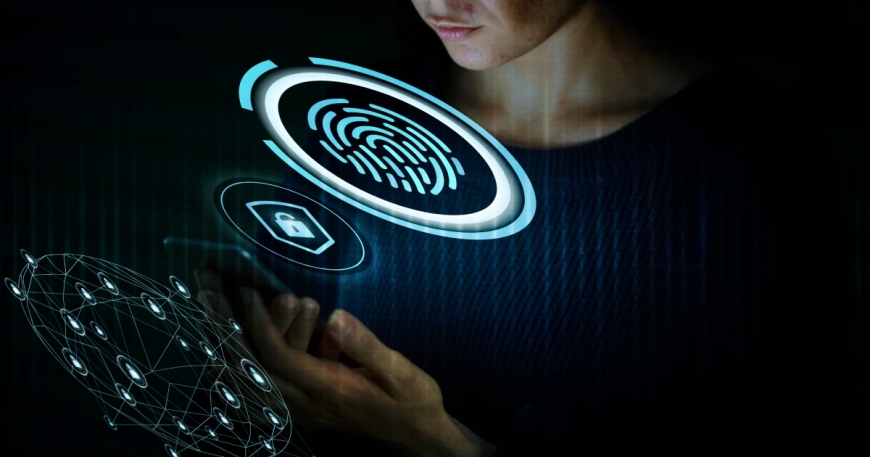Why Does Decentralized Identity Matter to Organizations?

Decentralized identity will change the game in identity management, redefining the concept of how organizations function and engage with users. It lets individuals maintain their personal data without a centralized authority being in charge, thus upending the status quo in digital identity. We will cover in this article why decentralized identity matters for an organization by defining benefits and implications for many industries.
Understanding Decentralized Identity
Decentralized identity, also known as self-sovereign identity, gives full ownership of the digital identity to the owner himself. Instead of relying on some central authority, like government agencies or corporations, for maintaining one's identity data, users can maintain it in their digital wallets. This allows them to make a decision as to when and with whom to share their data. This enhances privacy and security while reducing the risk of identity theft and fraud.
Decentralized Identity Importance for an Organization
Enhanced Security
Another huge benefit of decentralized identity with regards to organizations pertains to security. Most identity systems normally have a load of sensitive personal data, and these become points of interest for cyberattacks. The moment this is already set on the network, this translates into a reduction of instances related to data breach compromises on behalf of an organization. An individual's information is thus allowed to rest in a digitally secured wallet that reduces exposure to information that is sensitive.
Cost Efficiency
Decentralized identity systems can save organizations considerable amounts in costs. Companies are able to reduce the administrative and operational costs due to the elimination of a central authority that would need to be responsible for managing identity verification processes. This further streamlines other processes, such as onboarding new customers or verification, thus reducing costs associated with traditional methods.
Improved User Experience
Decentralized identity also allows for a better user experience through frictionless interaction with institutions while one has the same digital identity across multiple platforms. It relieves users from having to remember many usernames and passwords. Instead of trying to reduce friction in onboarding only, the seamless nature of the experience in general will raise user satisfaction and retention rates. For organizations, this means higher conversion rates and increased potential revenue.
Regulatory Compliance
Organizations should swell in the already emerging regulations in personal data protection, like GDPR, because there is a stiff penalty with loss of reputation when non-compliance issues arise. Decentralized identity solutions, because less PII is collected and stored, by nature already completely comply with these types of regulations. An organization may show its commitment to user privacy by adopting these decentralized systems that are designed first and foremost with the protection of data in mind.
Fraud Prevention
The clear nature of decentralized identity systems reduces fraud cases significantly. Since it utilizes verifiable credentials that have a high level of difficulty to forge and misuse, an organization can have faith in identities presented by users. This capability is most needed in finance and health industries where your actual identity must be correctly ascertained.
Interoperability across different platforms
Decentralized identity supports interoperability in using different platforms and services. With these, the organizations could give access to all services, based on one digital identity via standard protocols, hence guaranteeing universal compatibility and convenience to the users. This would increase the level of coordination among several service providers.
Use Cases Across Industries
The potential impact of decentralized identity spans many industries that include:
Financial Services: The decentralized identity in banking and finance would help reduce the time of KYC processes, thus improving compliance with anti-money laundering legislation and enhancing customer experience.
Healthcare: Decentralized identities will enable patients to decide who has access to which parts of their medical records, thus making sure sensitive health information is shared only with relevant personnel.
Education: This will offer a decentralized identity in educational institutions for the tracking of students' credentials in a far more effective way, hence reducing administrative pressures.
Supply Chain Management: Decentralized-identity-related unique identifiers can be utilized by companies in tracking product authenticity, which, in turn, increases the element of transparency, building trust within supply chains.
Read More: How Decentralized Identity is Changing the World
Conclusion
Adoption of decentralized identity will mark a leap in organizational change management and customer-engagement processes. Decentralized identity empowers an organization with the power to return to people control over their personal information-something that will really improve security, smooth operations, enrich user experiences, and ensure conformance with regulatory frameworks. As society marches ahead toward an ever-more digital future, it is on decentralized identity that the future depends for giving organizations a place in this new world.
Decentralized identity answers some very important problems with security and privacy but opens new avenues for innovation and growth in many sectors. Only a well-valued organization shall be better positioned to deal with the challenges thrown by modern digital interactions, as a user-centric, trust-and-engagement-focused force.
You Can Also Read This:Future of DID: Complete control over credentials with EveryCRED
What's Your Reaction?





















